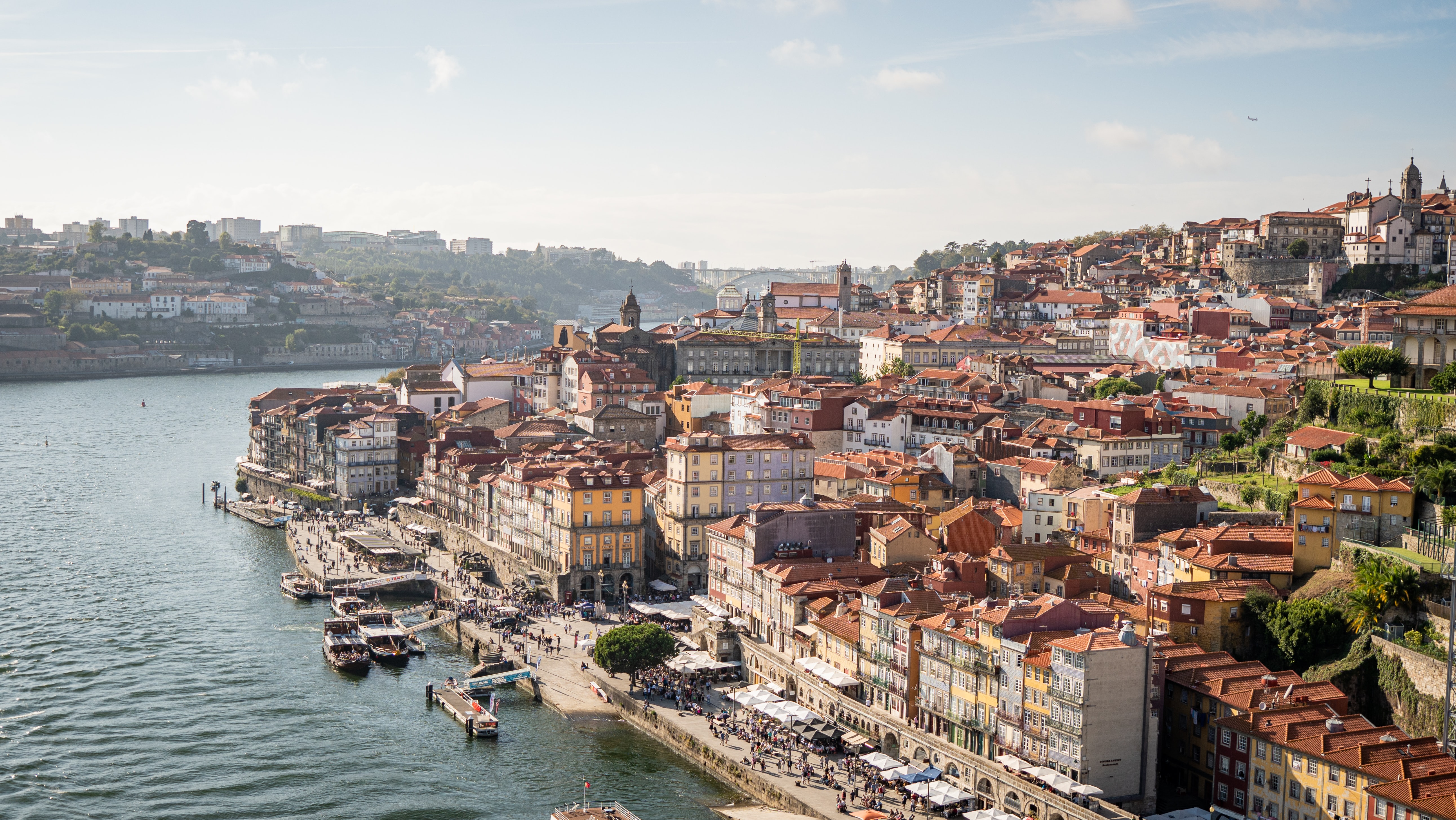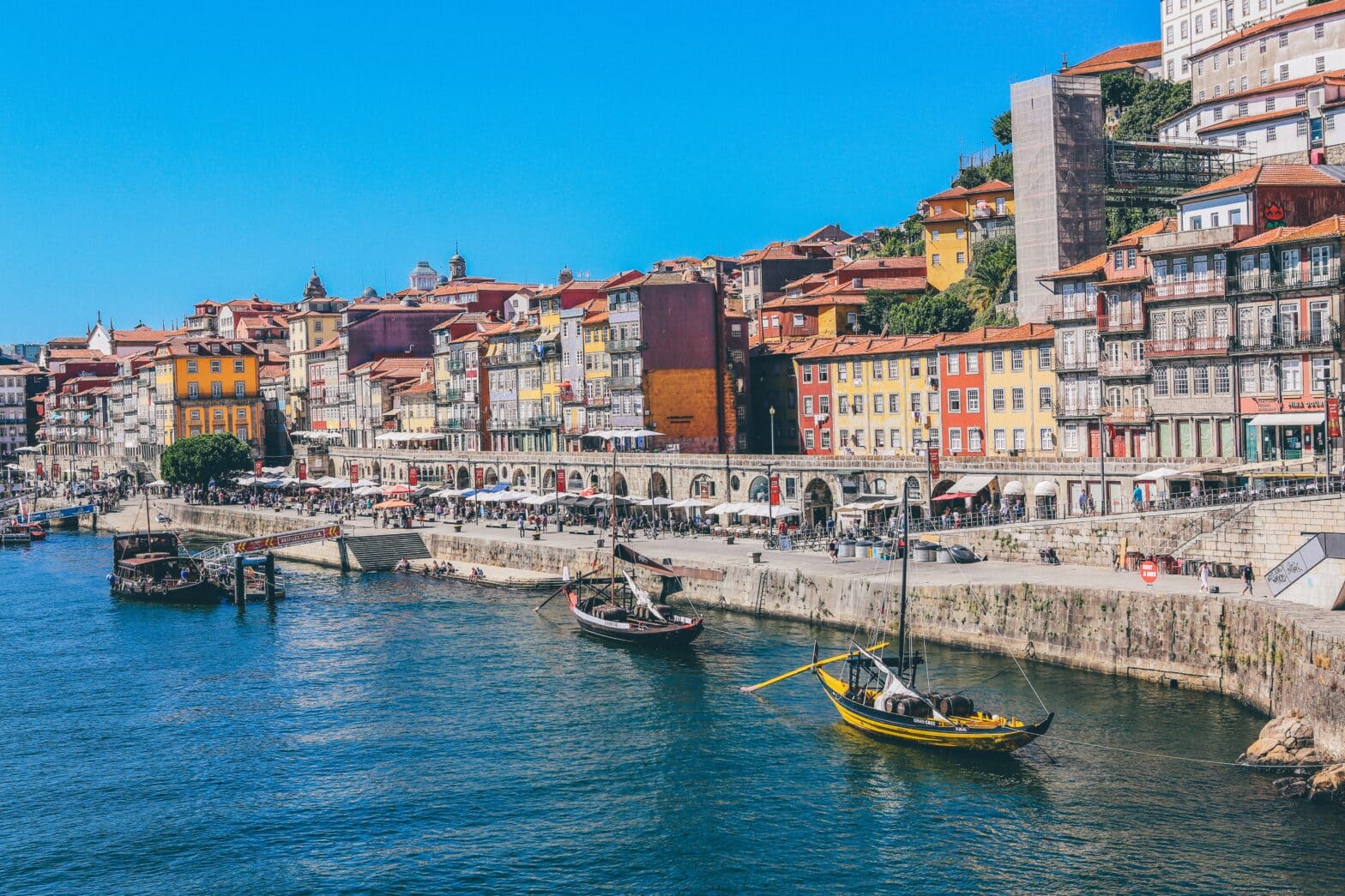Ready to settle in the south of Europe? Your new life is located between the land and the ocean! With its natural gems, cultural heritage, sunny climate and hospitality, Portugal is a popular destination among expatriates, digital nomads and retirees alike. And in 2022, this welcoming little country made it into the top 5 best countries for expats.
So what are the features of an expat life in Portugal? Foyer Global Health gives you some key tips for a successful expatriation to Portugal.
Moving to Portugal: some formalities
EU countries’ nationals as well as people from certain countries are entitled to travel and stay in Portugal for a period of up to three months without a visa. After this 90-day period, registration with authorities is mandatory.
Third country residents must apply for a residence permit: either a resident visa or a temporary residence visa depending on the duration and reason for stay. Once a job offer is secured, application for a work permit is required.
Those who wish to set up a business in Portugal can apply for the ‘Golden Visa’ scheme.
What are the advantages of a move to Portugal?
- Quality of life: this is the main reason why foreigners choose Portugal as a destination for their expatriation
- Pleasant and sunny weather
- Safety and security
- It is very easy to settle in
- Affordable cost of living (it is one of the cheapest countries in Western Europe; there is, however, a significant difference between the big cities and tourist areas on the one hand and the rest of the country on the other hand)
- Cultural heritage
- Beautiful natural surrounds at the sea and in the countryside



Accommodation
Whether you wish to rent or buy property in Portugal it is entirely up to you! Some expatriates, who plan to settle in Portugal for the long run, prefer to buy property which can be a good investment given the low interest rates and the country’s increasing attractiveness to tourists. In fact, Portugal is one of the most popular European destinations for foreigners to invest in real estate.
Depending on the city you move to, it is possible to rent a flat, a villa or a house and, as everywhere else, rental prices depend on several factors, including location and type of accommodation. For example, in Lisbon and Porto, the two most popular Portuguese cities for expats, rents are more expensive than in the rest of the country. Do not hesitate to use the services of a translator before signing your rental agreement, which is legally required to be registered with the tax authorities.
Healthcare
Residents from the EU, the EEA, Switzerland or countries that have agreements with Portugal are covered by the public health insurance system; they only have to pay a small share to the co-payment system to access health services such as medical consultations and hospitalisation. Like its European peers, Portugal’s public healthcare system suffers from some shortcomings, including long waiting lists, shortage of medical staff, and regional disparities. Moreover, you are not free to choose your health practitioner. Taking these shortcomings into consideration, the obvious choice is to turn to private Portuguese health practitioners and opt for an international health insurance policy.
Working in Portugal
While Portugal attracts many foreign retirees looking for sunshine and ease in retirement, the country is also popular among expatriates looking for job opportunities in the tourism, energy, technology and education sectors. Most expatriate workers settle in Lisbon or Porto as this is where most career opportunities are located, whether in the local branches of multinationals or in local start-ups looking to expand internationally.
Working conditions in Portugal are relatively good: 40 hours a week (with fairly flexible hours), 22 days of paid leave per year and up to two years of parental leave for new parents.
Many expatriates also choose to start their own business in Portugal because the cost of living is relatively low and the Portuguese government has been implementing special programmes to support new businesses, including ‘Momentum’, ‘Startup Voucher’, and ‘Incubation Valley’.
Taxes
Expatriates who reside and/or work in Portugal for more than 183 consecutive days in a calendar year are required to pay state and local taxes in income tax. This includes work, investments, assets. Expatriates can benefit from tax exemptions if they have applied for a ‘Non-Habitual Residence’ permit. Taxes are calculated according to your household’s income and expenses, but also depend on the taxpayer’s real estate ‘status’ (owner or tenant). In 2021, income tax rates, calculated according to income, ranged from 14.5% to 48%.
Remember to check if your country of origin signed a double taxation agreement with Portugal. And if you don’t speak Portuguese, get an accountant to help you!
If you own your property, you will also have to pay IMI (Imposto Municipal sobre Imóveis), a municipal tax calculated according to the value and area of the property.
Useful link: Portuguese finance portal
Moving around
Home to numerous airports (Lisbon, Faro, Porto…), Portugal is very well connected to the rest of Europe and the rest of the world. Some airlines like TAP Portugal offer domestic flights. The country is also equipped with a well-developed and easily accessible road network, including highways. It is also possible to use public transport (tram, bus and train) to get around the country, but be aware that trains do not go to small towns.
Opening a bank account
It is very easy to open a bank account in Portugal; all you need to do is collect the necessary documents, These include ID, residence card, proof of address and Portuguese tax number to be able to initiate the procedure online or in person. Remember to ask the bank of your home country if they have a branch in Portugal; if not, you can compare the cost of services offered by Portuguese banks, including Banco de Portugal, Caixa Geral de Depositos and Banco Santander Totta.
Top experiences in Portugal
● Taste Portuguese gastronomy such as pasteis de nata at the Fabrica dos pasteis in Belem or clam cataplana
● Explore the Parque Natural de Ria Formosa
● Take a break in the Serra de Monchique Valley, Faro
● Go for a street-art tour in Lisbon
● Surf the waves of the Atlantic at Praia do Norte, Supertubos or Praia de Carcavelos
● Relax by the ocean at Praia de São Jacinto (Aveiro), Marinha Beach (Algarve) or Praia de Moledo
● Go for a hiking adventure on the wonderful archipelago of Madeira, the ‘Garden of the Atlantic’.
